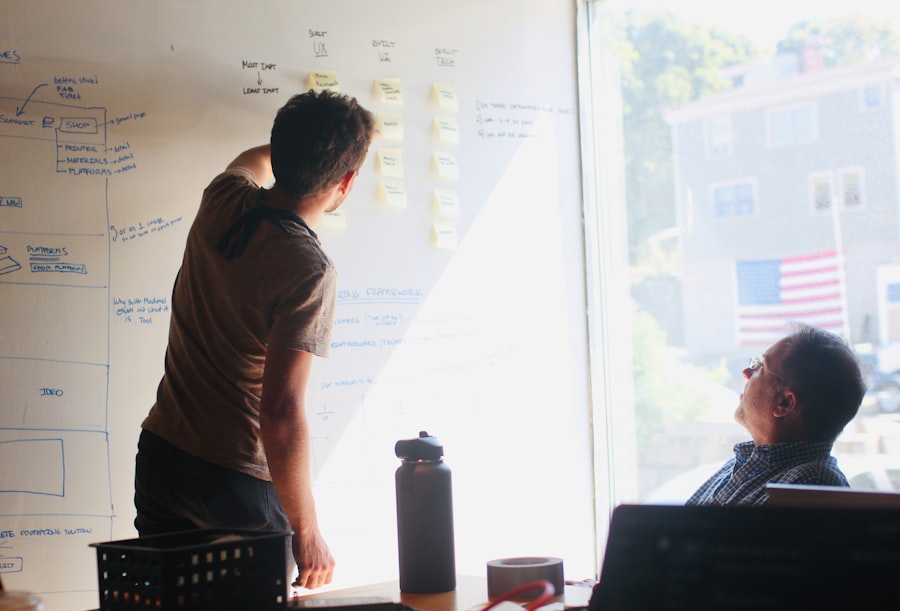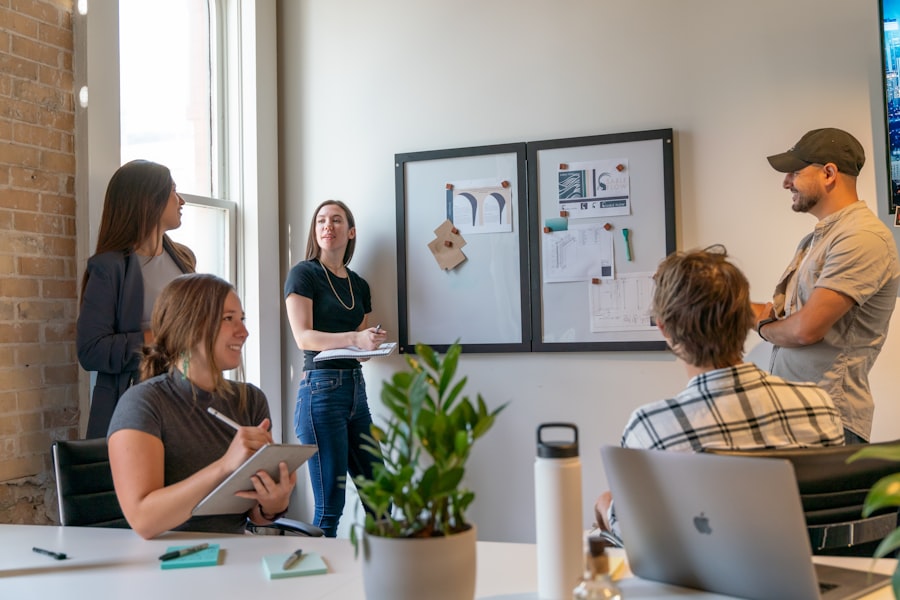Before a technical interview, candidates should thoroughly research the company and the specific role they are applying for. This includes studying the company’s mission, values, culture, recent projects, products, and news to gain a comprehensive understanding of the organization’s current initiatives and future direction. Such knowledge allows candidates to align their responses with the company’s goals and demonstrate genuine interest in the position.
Equally important is a clear understanding of the job requirements. Candidates should carefully review the job description, noting key responsibilities, required skills, and qualifications. Particular attention should be paid to specific technical skills or programming languages mentioned in the posting.
This preparation enables candidates to effectively address technical questions and highlight how their experience aligns with the role’s requirements. Comprehensive research on both the company and the position not only aids in interview preparation but also allows candidates to ask informed questions during the interview process. This approach demonstrates enthusiasm and commitment to the potential employer, potentially setting the candidate apart from other applicants.
Key Takeaways
- Understanding the Company and Role:
- Research the company’s history, values, and current projects to understand their culture and mission.
- Analyze the job description and requirements to tailor your skills and experiences to the role.
- Reviewing Technical Concepts and Skills:
- Brush up on fundamental technical concepts and skills relevant to the position, such as programming languages, algorithms, and data structures.
- Stay updated on industry trends and advancements to showcase your knowledge and adaptability.
- Practicing Coding Problems:
- Solve coding problems on platforms like LeetCode and HackerRank to improve your problem-solving and coding skills.
- Practice writing clean, efficient, and well-documented code to demonstrate your coding abilities.
- Familiarizing Yourself with Common Interview Questions:
- Prepare for common interview questions related to your technical skills, problem-solving abilities, and past experiences.
- Practice articulating your responses clearly and concisely to showcase your communication skills.
- Polishing Your Communication and Problem-Solving Skills:
- Enhance your communication skills by practicing explaining technical concepts and solutions in a clear and understandable manner.
- Develop your problem-solving skills by tackling real-world scenarios and discussing your approach and reasoning.
- Preparing Your Portfolio and Projects:
- Showcase your relevant projects and portfolio pieces that highlight your technical abilities, creativity, and problem-solving skills.
- Ensure your portfolio and projects are well-documented and presented in a professional and organized manner.
- Researching the Interview Process and Format:
- Understand the interview process and format, including the types of interviews (technical, behavioral, etc.) and the duration of each stage.
- Familiarize yourself with the company’s interview style and any specific requirements, such as whiteboard coding or pair programming.
Reviewing Technical Concepts and Skills
Reviewing Programming Fundamentals
Start by revisiting fundamental programming languages such as Python, Java, C++, or any other languages that are relevant to the role you’re applying for. Review key syntax, data types, control structures, and object-oriented programming principles.
Data Structures and Algorithms
Next, focus on data structures and algorithms, as these are commonly tested in technical interviews. Review essential data structures such as arrays, linked lists, stacks, queues, trees, and graphs. Understand their properties, operations, and time complexity for common operations.
Practicing Problem-Solving Skills
Additionally, practice solving algorithmic problems related to searching, sorting, dynamic programming, and graph traversal. Websites like LeetCode, HackerRank, and CodeSignal offer a wide range of coding problems to help you practice and improve your problem-solving skills.
Practicing Coding Problems

One of the best ways to prepare for technical interviews is by practicing coding problems regularly. This not only helps you sharpen your problem-solving skills but also familiarizes you with the types of questions that are commonly asked in interviews. Start by solving a variety of coding problems that cover different difficulty levels, ranging from easy to hard.
This will help you build confidence and adaptability when tackling challenging problems during the interview. When practicing coding problems, focus on writing clean, efficient, and well-structured code. Pay attention to edge cases, handle input validation, and consider different approaches to solving the problem.
It’s also beneficial to practice coding under time constraints to simulate the pressure of a real interview. Additionally, consider participating in mock interviews or coding challenges with peers or through online platforms to receive feedback on your problem-solving approach and coding style. By consistently practicing coding problems, you’ll not only improve your technical skills but also gain the confidence needed to excel in a technical interview.
Familiarizing Yourself with Common Interview Questions
In addition to technical concepts and coding problems, it’s essential to familiarize yourself with common interview questions that go beyond technical skills. Behavioral and situational questions are often used to assess a candidate’s communication, problem-solving, and teamwork abilities. Practice answering questions related to your past experiences, challenges you’ve faced, how you’ve handled conflicts or setbacks, and examples of successful projects or initiatives you’ve been a part of.
Moreover, prepare for questions that assess your problem-solving approach, such as how you would tackle a complex technical problem or prioritize tasks in a project with tight deadlines. It’s also beneficial to practice articulating your thought process when solving problems or explaining technical concepts. Additionally, be prepared to discuss your career goals, motivation for applying to the company, and how you see yourself contributing to the team and organization.
By familiarizing yourself with common interview questions and practicing your responses, you’ll be better equipped to showcase your soft skills and demonstrate your fit for the role and company culture.
Polishing Your Communication and Problem-Solving Skills
Technical interviews often involve not only assessing your technical knowledge but also evaluating your communication and problem-solving skills. It’s essential to polish these skills to effectively convey your thoughts, approach problems methodically, and collaborate with interviewers during technical discussions. Practice explaining complex technical concepts in a clear and concise manner, using diagrams or examples if necessary to illustrate your points.
Furthermore, work on improving your problem-solving skills by breaking down complex problems into smaller components, identifying patterns or similarities with previously encountered problems, and devising a systematic approach to tackle them. Effective communication and problem-solving skills are highly valued in technical roles as they demonstrate your ability to work well within a team, collaborate on projects, and convey technical concepts to non-technical stakeholders. By honing these skills through practice and feedback, you’ll be better prepared to excel in technical interviews.
Preparing Your Portfolio and Projects

Highlighting Your Technical Expertise
In addition to technical skills and problem-solving abilities, having a strong portfolio of projects can significantly enhance your candidacy during a technical interview. Showcase your relevant projects, whether they are personal or academic projects, open-source contributions, or work-related initiatives that demonstrate your technical expertise and creativity. Provide detailed descriptions of each project, highlighting the technologies used, challenges overcome, and outcomes achieved.
Creating a Portfolio Website or GitHub Repository
Moreover, consider creating a portfolio website or GitHub repository where you can showcase your projects, code samples, technical articles or blog posts, and any other relevant work that demonstrates your passion for technology and continuous learning. Having a well-curated portfolio not only provides tangible evidence of your skills but also serves as a conversation starter during interviews.
Being Prepared to Discuss Your Projects
Be prepared to discuss your projects in detail, including the problem statement, your role and contributions, technical challenges faced, and lessons learned from each project. This will demonstrate your ability to think critically and reflect on your experiences.
Leaving a Lasting Impression
A strong portfolio can set you apart from other candidates and leave a lasting impression on interviewers.
Researching the Interview Process and Format
Lastly, it’s essential to research the interview process and format specific to the company you’re interviewing with. Understand whether the interview will be conducted in-person, virtually, or through a combination of both. Familiarize yourself with the format of the interview rounds, including technical assessments, coding challenges, system design discussions, behavioral interviews, or whiteboard sessions.
Additionally, research the interviewers if possible to gain insights into their backgrounds and areas of expertise. This can help you tailor your responses or ask relevant technical questions during the interview. Understanding the interview process and format will allow you to mentally prepare for each stage of the interview and anticipate what might be expected of you.
Moreover, it demonstrates your proactive approach and attention to detail, which are valuable traits in any candidate. By researching the interview process and format beforehand, you’ll be better equipped to navigate the interview with confidence and composure. In conclusion, preparing for a technical interview requires a holistic approach that encompasses understanding the company and role, reviewing technical concepts and skills, practicing coding problems, familiarizing yourself with common interview questions, polishing communication and problem-solving skills, preparing your portfolio and projects, and researching the interview process and format.
By dedicating time and effort to each of these areas, you’ll be well-prepared to showcase your technical expertise, soft skills, and passion for technology during the interview process. Remember that preparation is key to success in any technical interview, so invest in thorough preparation to maximize your chances of landing your dream role in tech.
If you’re looking to brush up on your interview techniques, you might also find this article on common interview questions helpful. It provides insight into the types of questions you might encounter during a technical interview and offers tips on how to answer them effectively.
FAQs
What is a technical interview?
A technical interview is a job interview for positions in the technical field, such as software engineering, data science, or IT, where candidates are evaluated on their technical skills, problem-solving abilities, and knowledge of specific programming languages or technologies.
How should I prepare for a technical interview?
To prepare for a technical interview, you should review the job description and research the company, practice coding and problem-solving exercises, review fundamental concepts and algorithms, and prepare for behavioral and technical questions.
What are some common technical interview questions?
Common technical interview questions may include coding challenges, algorithm and data structure problems, system design questions, and questions related to specific programming languages or technologies.
What are some tips for performing well in a technical interview?
Some tips for performing well in a technical interview include practicing coding and problem-solving regularly, communicating your thought process clearly, asking clarifying questions, and preparing for behavioral and technical questions.
What are some common mistakes to avoid in a technical interview?
Common mistakes to avoid in a technical interview include not preparing adequately, being overly nervous or flustered, not communicating your thought process, and not asking for clarification when needed.



